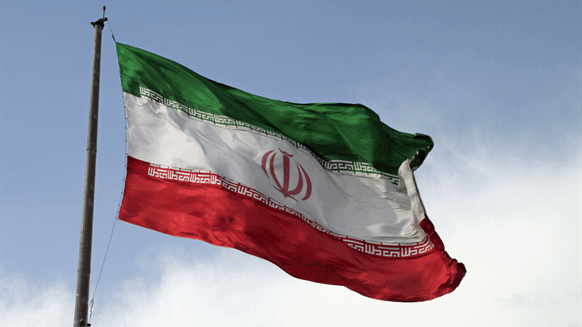Iran’s oil minister said on Sunday that the country had sent 83 million more barrels of crude abroad in the first 11 months of the Iranian calendar year compared to the same period last year, the government-owned Islamic Republic News Agency (IRNA) reported.
Another report by state media Press TV said, also citing Oil Minister Javad Owji, that the figure was Iran’s highest crude oil export since the reimposition of sanctions by the United States some four years
In November 2018, Washington reinstated economic sanctions on Tehran after the then-Trump administration pulled out of a deal aimed at denuclearizing the Islamic republic’s weapons. The sanctions “target critical sectors of Iran’s economy, including the energy, shipping, shipbuilding and financial sectors,” the White House said in a news release on 2 November 2018.
Iran’s oil exports for the first 11 months of the current year, which began in March 2022, marked a jump of about 190 million barrels compared to the same periods two years ago, as Owji said.
Gas exports soared 15 percent in Iran’s 2022-23 calendar year from a year ago, the Press TV report said.
Owji said the boost in exports had come about because the country was maximizing “all capacities, marketing and modified contracts”, as stated by Press TV.
He said, as quoted by IRNA, when the government had started under the new leadership “there were days when we had no oil sales”. But “energy diplomacy worked,” IRNA quoted Owji as saying.
Oil bonds
Meanwhile, Iran’s Ministry of Oil, according to Press TV, announced on Sunday that it will issue oil bonds worth about $6 billion.
The National Iranian Oil Company (NIOC) said in a press release that “transactions of crude oil and gas condensate deposit certificates on the Iran Energy Exchange (IRENEX) began” on Sunday. The state-owned company said the certificate is “a standard means of energy carrier transaction.”
“The physical supply of crude oil to domestic customers has become possible for the first time in the history of the Iranian oil industry,” NIOC CEO Mohsen Khojasteh Mehr was quoted as saying by Press TV.
US sanctions
The US State Department said earlier this month that it pledged to “significantly reduce Iranian energy exports and will sanction those who facilitate Iran’s oil and petrochemical trade.”
In a March 2 statement, it said it was “designating six entities that have engaged in the transportation or sale of Iranian petroleum products or petrochemicals, pursuant to Executive Order (EO) 13846, and is identifying 20 ships as property or interests in the property of these entities”.
These are China’s Global Marine Ship Mgmt. co. Ltd. and Shanghai Xuanrun Shpg Co. Ltd., Swedish Mgmt, based in the United Arab Emirates. co. SA, the Lotus Gold Oil and Real Estate Joint Stock Company of Vietnam, and the Iranian companies Bushehr Petrochemical Co. and Shiraz Petrochemical Co.
The department said the vessels were “blocked property of these sanctioned entities”.
“These designations underscore our continued efforts to enforce our sanctions against Iran. We will not hesitate to take action against those who attempt to evade our sanctions,” the statement warned.
Surveillance of Nuclear Activities
Tehran reached an agreement with world powers in 2015 to curb nuclear activities in exchange for easing economic sanctions.
Iran suspended its commitments after the US left the pact that took effect in 2016, called the Joint Comprehensive Plan of Action (JCPOA), and reimposed sanctions two years later.
Part of the treaty read: “Based on its long-term plan, over 15 years, Iran … will maintain its level of uranium enrichment to 3.67 percent…”.
The United Nations (UN) nuclear watchdog revealed on March 8 that its inspectors had detected at Iran’s Fordow fuel enrichment plant “highly enriched uranium (HEU) particles that they contained up to 83.7% U-235”.
According to the Washington-based Center for Arms Control and Nonproliferation, “weapons-grade uranium is commonly considered to have been enriched to more than 90 percent U-235. However, some research reactors use 90 percent enriched U-235 to produce medical isotopes, so there are civilian applications for this fuel as well.”
Iran’s government, however, agreed in March to allow monitoring by the UN’s International Atomic Energy Agency at three facilities of concern to the watchdog.
“Iran, on a voluntary basis, will allow the IAEA to implement appropriate verification and monitoring activities,” the IAEA and the Atomic Energy Organization of Iran said in a joint statement on March 4. “The modalities will be agreed between the two parties in the course of a technical meeting that will take place soon in Tehran.”
Negotiations that began in 2021 to revive the JCPOA have stalled since last year.
To contact the author, please email jov.onsat@gmail.com


